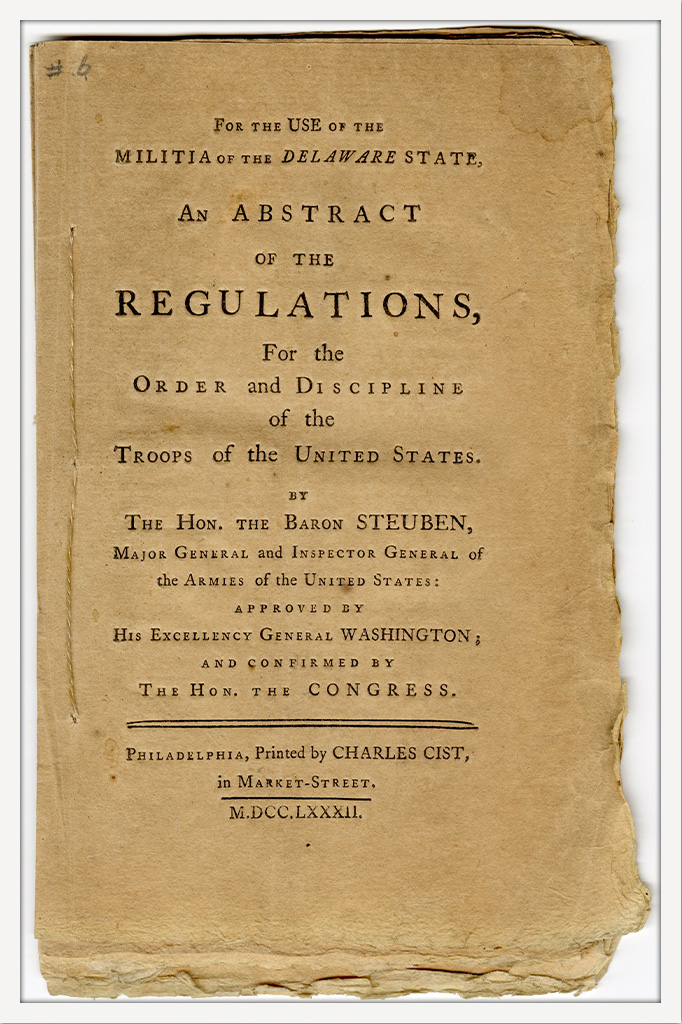
Following the British army’s defeat at the Battle of Yorktown in 1781, many in the American Colonies assumed the Revolutionary War was nearly over. But uncertainty remained. Rumors spread that Britain was preparing a new offensive, one that could once again target the middle colonies. If true, Delaware would once again find itself on the front lines of the conflict.
To prepare for this possibility, Delaware President John Dickinson drafted a new set of regulations for improving the Delaware Militia. Believing that the state’s defense depended on a disciplined force, he turned to the training methods of Baron Frederick von Steuben, whose military manuals were being used to shape the Continental Army.
Pamphlets adapted from von Steuben’s instructions were printed in Philadelphia and distributed among militia officers and enlisted men. These guides detailed precise drills for marching and fighting in close formation — what Dickinson called “a system concise, easy, and efficient.” Each motion was to be practiced until soldiers could carry out their orders quickly and consistently in battle.

Beyond technical instruction, Dickinson provided a preface to the regulations that reflected his philosophy of defense. He reminded Delawareans that military strength should serve liberty, not ambition:
“I hope the martial spirit of Americans will never be inflamed by the wild and wicked suggestions of ambition or avarice, but I wish that noble temper of freedom always to prevail among them, that meaning no harm to others, vigilantly guards against injustice.”
Even after Yorktown, Delaware’s leaders remained cautious, ensuring their militia would be ready for any renewed British aggression. Dickinson’s regulations reveal not only the practical steps taken to defend the state, but also the principles guiding Delaware’s Revolutionary leaders: a commitment to liberty, justice, and preparedness in uncertain times.